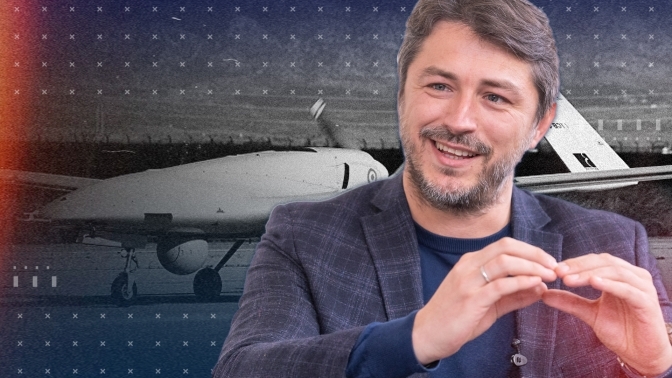
[For urgent updates please follow Ukrainian Freedom News on Telegram]
About volunteering
You said that now, it’s better to present yourself as a volunteer, right?
It is better to represent a person based on what he does in a certain period of his life. A year ago, you could call me a TV presenter, a politician, or a public figure. For the last seven months, I’ve been doing volunteer work exclusively. De facto, I haven’t done anything other than that. Neither work as such, nor political activity, which actually ended on February 23. Social activities remained, and volunteering is part of them. Thus, in fact, I am a volunteer and a father, because the children remained in my coordinate system.
Still, you have been volunteering since 2014.
Yes, but it’s not comparable as the scales are different. Ideas about war have changed, even though it was very scary then. There was no such intensive work of artillery systems or that much manpower. Aviation, the fleet and ballistic missiles hadn’t been involved.
In the current total war, the society, especially volunteers as its active part, have faced serious challenges, which we are overcoming with dignity.
There are many volunteers, but your foundation is currently one of the largest and most well-known. You were able to capitalize on your notability into fundraising opportunities.
This is not only a matter of public recognition but also the eight-year-long experience of volunteering. When the big trouble came, people went to those who already had experience through previous activities. For example, at the end of 2021, when Zaluzhnyi gathered us, we already had a dozen or so active volunteers who had various budgets at their disposal. The same with suppliers. The meme that «Prytula bought everything» was, on the one hand, baseless, but on the other hand, the drone distributors contacted me and the «Return Alive» foundation in the first place, because we had been steadily receiving a certain amount of drones from them before. If in 2021, relatively speaking, I delivered 100 drones of various types to the front and was quite proud of that – because this was a huge budget – then as of August 24, our foundation alone has sent 2,400 drones. This became possible thanks to the incredibly large involvement of Ukrainians and a few foreigners. One can’t help but be happy about the changes in Ukrainian society, the maturing of the nation, but it’s very unfortunate as to the reason for this. The next challenge will be how to maintain this unity and monolithic state after victory, since now it’s based on the presence of a common enemy.
Returning to the issue of volunteers: in Lviv, it has already happened that the police initiated criminal cases against well-known volunteers. During a recent discussion at the «Tvoe Misto» studio, we heard an idea to impose a moratorium on checking the volunteers’ activities. Serhiy Prytula and Taras Chmut are now unattainable figures. Does your reputation and publicity make you untouchable in this sense?
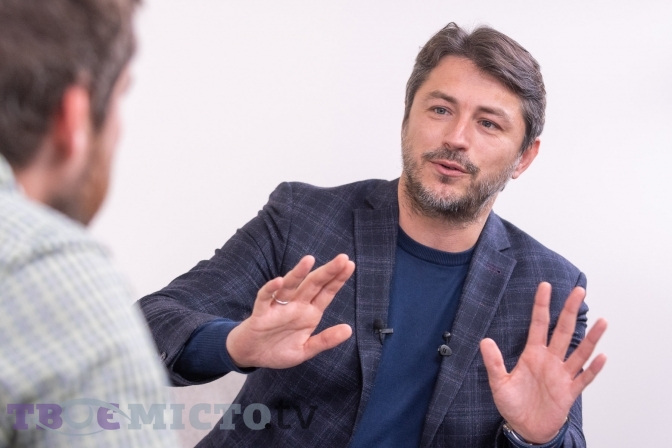
This is a misconception. We are working in a certain legislative field. We receive questions from the financial monitoring department every day and stay in constant communication with the National Bank. There are a lot of problem areas.
Still, there are people who cannot approach the National Bank or command…
For this, they have Chmut, Prytula, and more. In August, we and other volunteers had a meeting with the leadership of the Verkhovna Rada. In addition to the speaker Ruslan Stefanchuk, there were other MP’s who make decisions. For example, Hetmantsev is the head of the parliamentary committee on finance, tax and customs policy. We came to this meeting for ourselves and, as it’s said, for that boy. Now, [the law enforcement agencies] can catch any volunteer in Ukraine at will, absolutely calmly – even us with all our background.
Read also: «State would have to support the volunteers.» Public activist Sviatoslav Litynskyi on criminal cases
When the Russians bombed Kyiv, we did not bother to collect all the documentation to provide units. Guys from the 72nd brigade fly up to you, all covered in soot, with their faces and hands smeared with oil. You give them everything they ask for, and they leave. You just write down which brigade you gave it to, and that’s it. Law enforcement officers and politicians know this well. We joke that the only difference between us is that they are untouchable, and we can be «grabbed». Although this may cause certain social disturbances.
I may not like the ideas introduced by Danylo Hetmantsev, but when we communicate, we show the scale of the problem. Starting from a volunteer who collected money in a month to drive one car, and finishing with funds that operate with huge budgets, we see that the problems are the same. Hetmantsev suggested that we can try to work on the concept of «volunteer amnesty» for February-May at the legislative level. Because at the beginning of the summer, it would be worthwhile to take care of the systemic work and documentation.
We don’t know to what extent the words of the lawmakers will differ from their actions, but they have already thrown the ball into their half of the field. I am afraid that the problem of those cases in Lviv and beyond, regarding the absolutely poor communication of law enforcement officers with the volunteer environment, is much deeper.
Unfortunately, quite a lot of people in Ukraine live by politics and the upcoming elections. The war is not over, it’s a very hot phase. Still quite scary. The belief in victory is present, the final price is unclear, but it does not prevent certain groups of individuals from working with a view to the future perspective.
The upcoming elections will be slightly different from those that took place in 2014. Then, in fact, at the parliamentary elections, there were people in each faction who had one thing in common. Yurii Bereza, Semen Semenchenko, Tyteruk – they were combatants of volunteer battalions, had relative subordination, subordination along the lines of the Armed Forces. They had unlimited freedom of speech, gained weight in the information field, and began to comment on some events. There will be no such history now, because the Armed Forces of Ukraine are visualized by Zaluzhnyi [Commander-in-Chief of the Armed Forces of Ukraine] to a greater extent. Subordination does not allow anyone to hang any medals on themselves, to tell that they liberated Kyiv or Izyum.
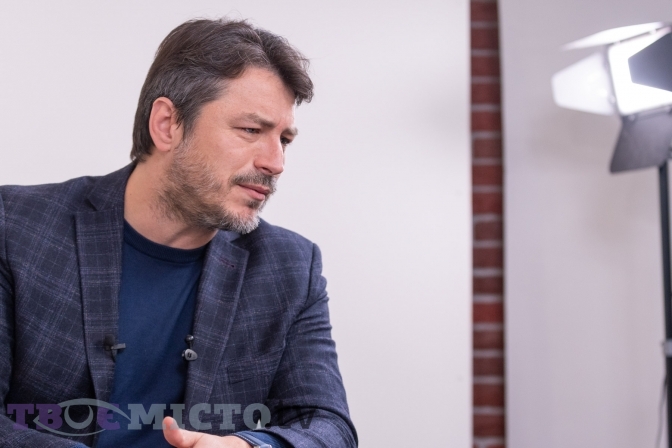
The volunteer environment is usually personalized. It’s not important whether this is the all-Ukrainian or the territorial community level. People see and know volunteers and trust them, especially in the financial sense. And these people are now the leaders of a new generation, they are leading towards some common goal, working and gaining a certain authority. The volunteer movement in Ukraine has already risen to such a level of trust that it cannot but automatically attract certain personalities.
Can this movement be structured in any way?
No, I don’t believe that. The volunteer environment is extremely heterogeneous. As practice shows, it’s only situationally ready for synergy, but rather not at the highest level. Otherwise, the institution of volunteering would’ve been formalized a long time ago. The volunteer environment poses a certain threat to existing elites. And everyone will not mind if the trust in the volunteer movement is nailed down a little. Those behind it are doing an extremely terrible thing. Last month, the Zagoriy Family Foundation conducted a large survey about volunteering. At the end of the study, there is an extremely important point: 28% of respondents completely stop donating to a volunteer/organization or significantly reduce the amount of money donated if they learn that law enforcement officers are arresting or suspecting volunteers. That is, every fourth person, and this is in the hands of the Russians.
War and politics
Colonel Glen Grant, a British expert on military reforms, advised the Ukrainian authorities, emphasizing that the Ministry of Defense should create a military cabinet and recruit there the most capable people, regardless of their party affiliation. That is why we now have Zaluzhnyi, Syrskyi. But it seems to me that at the level of politics, everything has remained as it was. Zelenskyi conventionally hates Poroshenko and vice versa, while the corresponding voters irrationally hate one or the other. This irrationality should not work at the level of elites, intellectuals, cultural figures and politicians, but it does. Can you imagine a government consisting of officials from both sides, who have reconciled for the duration of the war?
Pretty difficult, but it would be right. The idea of giving part of the seats in the opposition government is healthy. But in our country, it is accepted that the winner takes everything. It was a pleasure for me to observe for a month and a half how everything was cool in Kyiv. After February 24, there were far fewer people left than usual, and virtually no politicians left.
Those ready to die had remained.
The situation was unclear, so there were those who made a balanced decision. It was nice to see a truce, a silence, a buried hatchet. But after the «orcs» were knocked out of the Kyiv region at the beginning of April, the work of bot farms intensified. They worked beautifully both on one side and on the other: they did not hit the leaders, only the entourage. But it could not last forever. The cynicism and baseness of the situation lies in the fact that certain political leaders do not promote hatred of their opponent, they walk almost with halos, while the whole environment engages in daily hate.
Read also: «We are drops that make up the ocean.» This is how Lviv bloggers help the army
This is scary, because Russia «pours» a lot of money into its information and psychological «special» operations in order to divide Ukrainian society. That’s because they understand that it’s impossible to overcome a monolithic society, which stands behind the army and helps the military every day. However, if you divide us into factions, groups based on political preferences – then we’ve lost, because it can spread from society to the army – and that’s all. Therefore, people who spread hate are «useful idiots» in the hands of the Kremlin, no matter which patriotic «garden bed» they belong to.
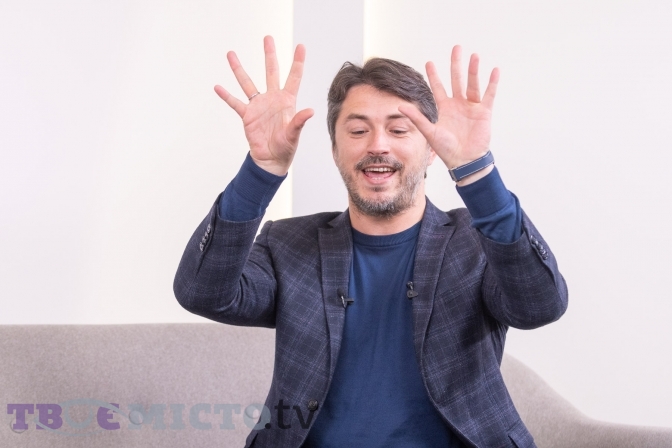
Trust is the greatest social treasure we have gained since the beginning of the war. I am not a fan of President Zelenskyi, but I am pleased when I see more than 70% of his support, because it means that the country is holding on.
I may have many questions for President Zelenskyi, primarily regarding personnel policy, but after February 24, there is no concept of President Zelenskyi in my coordinate system – there is Commander-in-Chief Zelenskyi. It is normal for any society to unite around a decision-making centre. In this sense, Zelenskyi is taking truly correct steps. I don’t know if he was alone or if he was being advised, but the decision to stay in the capital was quite competent. This greatly influenced the motivation of the military, as they themselves told me. It is wrong to defend the city if the authorities have left it...
Television and Russian culture
Your life as a TV host is on hiatus now. However, with your colleagues on the set, everything is different. Someone is abroad, someone here, some of those who were Russian-speaking now record something in Ukrainian, the rest don’t. How do you feel about it? Those people who have been part of the Russian-speaking world in Ukraine for a long time... should we accept them? Should the Russian language and Russian-speaking culture remain in this country?
I am quite categorical in this sense. There are many world classics with which we can easily replace the presence of Russian in the Ukrainian cultural environment, it will not make us worse. I’m not really following my former colleagues in showbusiness, and I don’t know if I will have the strength to return to the creative industry in the future. It’s good to do what I was doing when you feel inner harmony, when there are «elfs» that motivate. You run to work because you like to entertain people, quietly promote correct narratives, and remain a Ukrainian-speaking host for 17 years. When I entered this process, I felt like a white crow.
Read also: «We were first among the Soviet countries to dismantle the monument to Lenin»
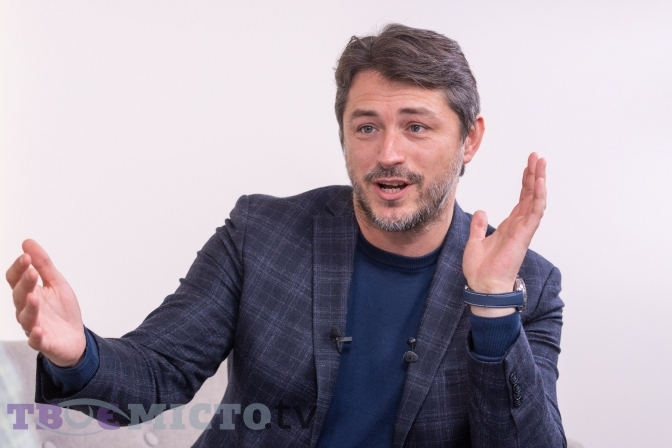
However, Facebook sometimes slips in certain things. Once, I called Masha Efrosinina and said: «You arranged an interview with Alan Badoev. Both he, and [the singer] Max Barskikh, did not get out of Moscow, until suddenly he tells you about his pain. Why are you doing this?» She answered me that the man had such a life, views, and he believed that something existed like this. Suddenly, for some people, this scheme, which they considered correct, has collapsed. And they got confused. There are many of them, and Badoev is the one. The public revealed his mistakes, and his repentance is extrapolated to many others who feel relieved, they say, because someone spoke for them. It has the right to exist, but it’s important whose sincerity I believe and whose I don’t. 17 years of TV career leave a mark. I know very well which of these people can sincerely transform, switch to Ukrainian, become a Russophobe after being a categorical Russophile, and who «changes his shoes in the air» at such a speed that Usain Bolt is not even standing next to him.
Once upon a time, we the children of the Soviet Union, listened to Russian [music], although the older ones copied Led Zeppelin from Polish radio. I don’t like the idea of canceling Russian as it’s the displacement of trauma and pretending that it doesn’t exist. We will be able to do it in Lviv, but how to be with Luhansk or Kharkiv, which was to a certain extent part of the Russian Empire?
I have the answer, as it’s said, for a boy’s mind. What is Russia? Imagine a big vat of shit that stinks, and in it – people, culture, visions, an imperial ghost, a politician and Ivan from Ryazan, who goes to the toilet eight meters from the house. They tell me: «Somewhere in all that shit there are diamonds, they need to be saved!» So what to do? They answer: «Put your hand in there, poke around, find and evaluate them.»
You know, I’ll answer no! I don’t want to dig into Russian crap in search of «diamonds» of Russian culture, the «good Russians» of today. You can’t save a healthy toe on a gangrenous infected leg: either chop it off or not. But if we pull strings, because the whole world reads Dostoevsky and Bulgakov, then it will once bring us issues.
Let everyone think as he wants. We have figures who are showcases of the Ukrainian cultural world, but how many are those whom our children do not know and haven’t read. It is necessary to open certain layers additionally. Cultural and educational issues of post-war reconstruction are no less important than visible physical ones. You cannot create a bunch of anti-corruption bodies without changing the mentality of society. Children should not grow up with the awareness that some anti-corruption group should fight corruption, but with the fact that taking a bribe is a bad thing, that the person who takes it or gives it is shit that harms the state. The butterfly effect does not work here.
What after the war?
Trust and common intention must remain even after the victory, so that Ukraine does not end up in great destruction.
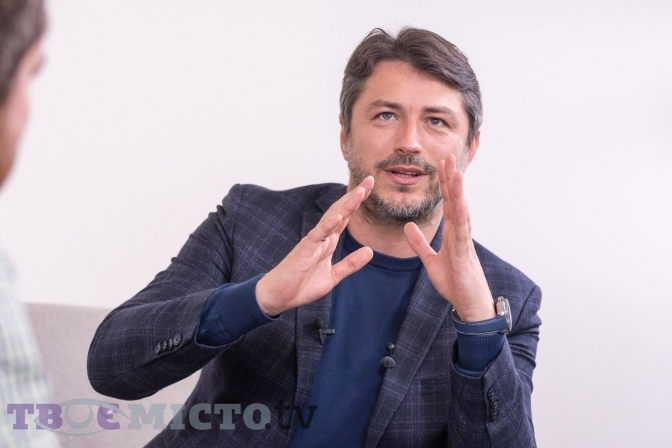
It seems to me that everything will depend on the so-called elites on which people are oriented: politicians, cultural figures, leaders, opinions, and the blogosphere. The agenda in society is not formed by a group of people, but by everyone a little at a time. And now, with those top layers of society, we need to establish closer communication, not to dig up the buried hatchet, and little by little conclude what is called a social contract in civilized countries. There is an opinion that it used ti be with us, but «died». The essence of this social contract was that sometime in the 1990s, the authorities and the so-called elites said to society: «Here’s a free education for you, other social «nothings», but don’t care what we do with the rest.» And when the rest, including state enterprises, were grabbed, whle the social component did not move for the better – the social contract fell apart. Despite my positive views on the future, I don’t believe it can be established quickly.
There is an opinion that the war with Russia is the last continental war for independence. And what will happen after this independence? Should there be a national component or a successful democracy? What can be the basis of a social contract?
The basis could be a total reform of the education system, which would provide a basis for further changes in society. Still, this opinion is not popular in any of the circles in which I communicate, because people talk mostly about money. It is very difficult to pave one’s way with such visions, and those who supported them did not go beyond their circle of the same passionaries.
We now face the biggest challenge: we either defend independence or disappear from the political map of the world. I do not want to be a representative of a nation without a country, of which there are already enough. We want to leave our children with a state that has the right to exist in a different coordinate system than the one in which we lived for more than 30 years. For this, many «tectonic shifts» must occur.
First of all, we must destroy the level of paternalism in society and treat the infantilism. It will be a painful process, like breaking your legs and arms, but you will not get away from it. Shifting responsibility has not yet brought anyone to good, but only to the establishment of dictatorship and tyranny. This is how we should differ from our crazy neighbours, who absolutely voluntarily gave the full power and the ability to make decisions to a limited group of people. Although our Constitution gives us the opportunity to delegate powers to the authorities, we must form a wider core of active citizens who must control all these processes and not be afraid to take responsibility.
Before the war, I travelled around the regions and raised this issue. It doesn’t matter if it was Kherson,Trostyanets, or Chernivtsi. Each city has a certain number of people who can be useful, for example, in the local government system. But, in order to be an active civil society, they do not take a proactive position, do not want to go out of their comfort zone where they will immediately start to be disliked.
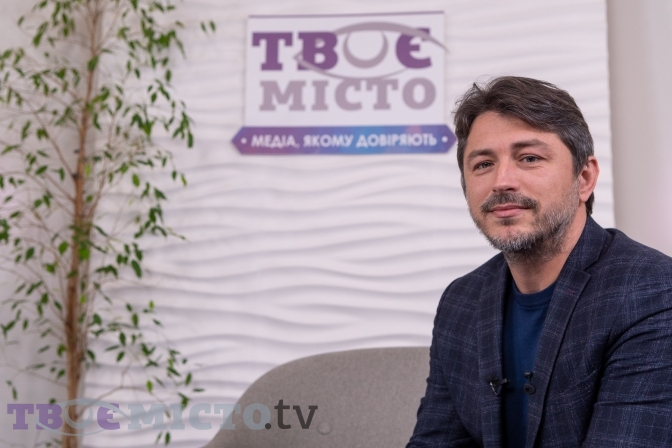
However, coming to power will give you the opportunity to scale what you have already done for your community. Ultimately, this is a constant need for dialogue between government officials and activists. Such people are usually seen as urban lunatics, which is wrong. This is like a person who demands that the city’s budget be distributed transparently, that the officials are accountable to the community, and for the community itself, is someone who rushes where it’s not necessary, and has some interest in it. This attitude must be eradicated.
Maybe it’s a case of some kind of local patriotism? For example, the power in some small town, which is already «cemented», is built on connections. People understand there is a conditional mayor who steals, but they already have a certain social contract...
It all is now based on decentralization. After the cities began to have more money, the regional «princes» began to implement more infrastructure projects, and visually it seems that they began to work more. There were more jobs in the city only because there was more money. It seems to me that the percentage of bribes has remained stable, but it has increased quantitatively. I don’t see regional differences in what we are talking about. There are also the same models of what to give people so that they say: «Well, finally, everything is okay.» The late Kernes once made a very beautiful park and adjusted the work of communal services, so that visually everything was clean and licked. Then it was scaled to Kyiv, and spread to the regions. Now, when you ask the average Kyivan what is good in the capital, his answer would be «parks». If it can be compared with Maslow’s Pyramid [the commonly used name of the hierarchical model of human needs, reflected in the scheme of the American psychologist Abraham Maslow], then this is the first, lowest level: to have something to eat and somewhere to go for a walk with the children.
The abuses are identical, even if we are talking about certain specific areas. Last year, we entered into a partnership with an organization that unites dozens of regional public organizations and foundations that deal with the issue of inclusion. A questionnaire was created for them, and 45 out of 50 organizations, independently from the region and the city, confirmed that they have the same problem. Parents of children who need rehabilitation and socialization run around the city councils, appeal to deputies and mayors with a request to provide at least some kind of room for classes. After long-term «battles», the city authorities allocate communal property which usually are the «destroyed» premises without water, electricity, with torn walls and broken floors. The parents are looking for funds, donors, and use their own money to repair it all, often with a bribe component to speed up the repair. The children work there for three years, and then the lease expires, and the authorities evict them, while the renovated space is leased to a commercial structure. This scheme works throughout Ukraine.
If there is any kind of democracy, then next time this city government should not be elected, but it doesn’t work like that. Maybe, it’s because there are no independent communal mass media yet.
This problem is much deeper. On the one hand, it’s not communicated by the affected party because they fear the publicity will worsen it.
And the authorities can make it «worse» very quickly – through inspections, the police, the prosecutor’s office, and now – also through subpoenas.
In some cities of Ukraine, the circular guarantee covers everything and even more. Still, unfortunately, often even the community itself does not care about these problems, because everyone cares about their own.
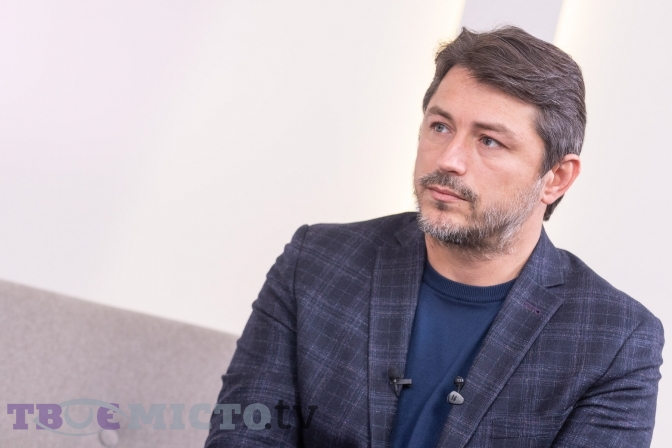
We have a prevailing opinion that if we carry out judicial reform and find incorruptible judges, then everything will be fine.
Judicial reform is undeniably important, but it’s not decisive. A few years ago, the head of the American Chamber of Commerce in Ukraine, Andy Gunder, showed me the results of a survey of foreign businessmen. To the question of why they do not invest in Ukraine, the answer most often was «the weakness of the judicial system», not the war. Investors have no certainty that the Ukrainian court will defend them if their business is suddenly raided. The president of Estonia once told her citizens not to invest in Ukraine, and it was a good slap to the state’s management system. I would probably burn with shame after that.
This happened despite the fact that Estonians gave the most aid during the war relative to their GDP.
In 2015, the purge in the police took place. Corruptors and bribe-takers were weeded out of the system through attestation commissions. Many were indeed expelled from their positions, but more than 90% of them were reinstated through the «incorruptible» Ukrainian courts. Judicial reform is a must have, but after it, everything cannot be improved immediately.
I recently read a sociological study, according to the results of which the majority of Ukrainians are confident of victory, ready to contribute to it, and see the future in bright colors. But it is frightening that the majority is convinced that the next day after the victory, everything will be reset – corruption will disappear, oligarchs will have no influence, and people will not quarrel. This is a utopia, because we will face incredible challenges. In the post-war period, corruption often grows even more. We have the example of the Balkans. The West is thinking how to level it in Ukraine. There will also be demographic problems, because not everyone will return from abroad: children are already in schools and kindergartens, mothers have found work, while fathers are fighting here. After the end of the war, the question of who should go to whom will arise. And what will they choose: an arranged life or a bombed-out house and no work? This must be prevented.
One of our best economists, Pavlo Sheremeta, sees one way out here – Ukraine must become a country of greater opportunities.
I came to Lviv from Warsaw, and I had a conversation there with a man who emphasized: «Don’t put your hopes on it, judging from Polish experience!» Poland has experienced a serious outflow of citizens, so two million Ukrainians are not a problem for the country, but a replacement of workers. The Polish authorities were wise when they announced in March that they would not ask the EU for compensation for the accommodation of Ukrainian refugees, as this would allow the EU to show its guts in the future on its request to accept another 50,000 Syrians.
Read also: How this war impacts the economy of Ukraine and the world. A talk with Pavlo Sheremeta
A policy regarding migrants should be prescribed for the future. People will die, many will not return. To restore the economy to pre-war levels, we will need working hands. There will be a challenge to society, who should we lure here. To let in Belarusians, about whom we have an internal trauma, because rockets were launched from their territory, or people from Central Asia, with whom we have many cultural differences? Won’t it lead to social explosions, the creation of a kind of ghettos? It’s a huge amount of work, and I don’t yet see an initiative group working on it. This should be done now.
Finally, tell us please what victory will be in this war, in your vision?
I will tell you how I see it, because there is no final definition of victory in the Ukrainian environment. For some, it is peace at any price, while for others, it’s the return of the territories that were ours on February 24, 2022. The hell with that Crimea and Donbas! For many, this is the restoration of Ukraine within the borders of 1991. Although this is not enough for some: we need to restore our sovereignty, and the Russian Federation disintegrated as an evil empire. There is no single one for the majority.
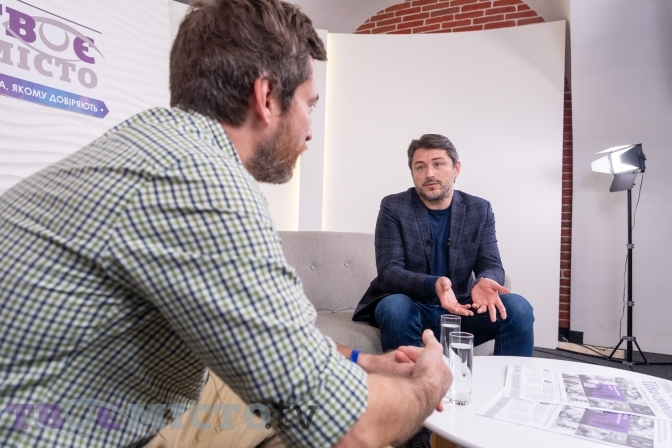
Someone says that the fact that Ukraine will be in the EU and NATO in a few years will be a victory.
There is also such a position, but this course is enshrined in our Constitution, so sooner or later we will get there. I would like to take a walk with my wife along the shore of Kalmius, I promised my children that I would take them to Lake Donuzlav in Crimea. This is how I see our victory: with our flags and the Ukrainian administration in any part of the country.
But I am a civilian and understand that most decisions are made not in offices, but on the battlefield. Therefore, all our prayers for the Armed Forces, all our hopes for them and our total support as well. Only they can give us an idea of the Ukraine of the future. This is what we talk about with European journalists, deputies, senators, and congressmen. We don’t need them to fight for us: just to give us weapons, and our army will do the rest! When the army shows results, as it’s now in the Kharkiv region, everyone just goes crazy both in our country and abroad. This is the latest history of wars, we should be proud of what our people produce, tell our children, tell our grandchildren who made this country that they will have.
My advice is this: get up in the morning, think about what you can do for the army; go to bed in the evening and think if you have done enough. If it’s not enough – you don’t need to burn out, bite yourself, but just think about where you can add energy to go to bed happy.
Andrii Saichuk spoke
Text: Kateryna Bortniak and Marichka Ilyina, translated by Vitalii Holich
Photo by Tvoe Misto. Collage: Dmytro Taradayka
Full or partial republication of the text without the written consent of the editors is prohibited and considered a violation of copyright.
Follow us on Facebook and Instagram. Lviv Now is an English-language website for Lviv, Ukraine’s «tech-friendly cultural hub.» It is produced by Tvoe Misto («Your City») media-hub, which also hosts regular problem-solving public forums to benefit the city and its people.












